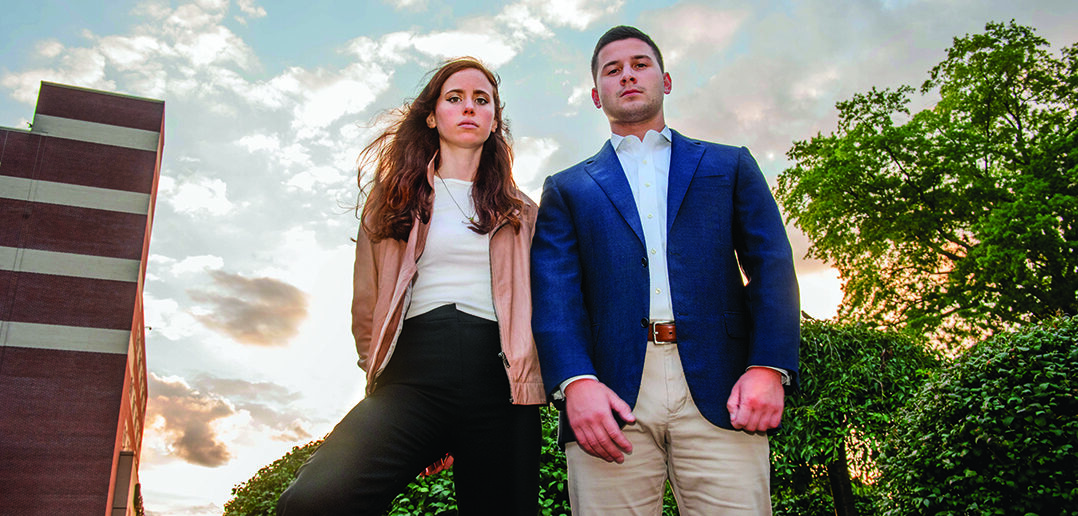Start-up at once addresses health equity and pharmaceutical waste.
Many patients experience an adverse reaction to cancer that is rarely discussed: financial toxicity. Within just two years of treatment, 42 percent of cancer patients have depleted their entire life savings. Higher copays and insurance premiums combined with the hefty price tags of some oncology drugs—$10,000 to $20,000 per month—mean that many Americans are forced to choose between food and clothing or their therapies.
These facts horrified Eliza Sternlicht ’22 and Jack Schaeffer ’22. They heard more disturbing anecdotes from pharmacists and nursing home patients. “One patient cut her pills in half to make her prescription last longer,” Schaeffer says.
At the time, the pair were writing a business plan to solve a different problem: the waste of unused pharmaceuticals. At nursing homes across Rhode Island, “we would see enormous biomedical waste bins filled with the exact prescriptions patients needed,” says Sternlicht, a biomedical engineering concentrator. When patients change prescriptions or dosages—or die, leaving unused drugs—the medications just get thrown out.
“That lit a fire in our hearts,” Schaeffer, an applied math and economics concentrator, says. So in 2020, the students founded MediCircleRx to gather and redistribute oral chemotherapy.
There have been many pieces to assemble, from collecting unused medication and quality and inventory control, to identifying patients with financial need and matching them with the right drugs. The founders worked closely with stakeholders—including insurance companies, hospitals, pharmacy benefit managers, pharmacies, and manufacturers—to develop their process.
MediCircleRx is initially focusing on the redistribution of oral chemotherapy drugs in blister packs, which, as toxic chemicals, must go back to the dispensing pharmacy for disposal. Sternlicht and Schaeffer have worked to automate as many processes as possible at the company’s offices in New Jersey and Rhode Island, where returned drugs go through a proprietary three-step quality control procedure that’s more rigorous than the law requires.
The patient pays a flat fee of $20 for drugs, the minimum Medicaid dispensing fee. “We think it is unfair that patients have to struggle with the financial as well as the health burden of cancer. We want them to focus on getting better,” Schaeffer says.
After operating on prize money—$25,000 as the winner and fan favorite of the Brown Venture Prize Pitch Competition—and some funding from Brown Hatch Health, an incubator that supports student-run medical ventures, the duo is now raising a round of angel funding.
When the Boston Globe wrote about MediCircleRx last August, the company received more than 100 emails from people requesting drugs or partnerships, says Schaeffer, whose home address was on MediCircleRx’s website. “Two days after the article came out,” he adds, “my mother opened the front door to find $65,000 worth of medication.”
It proved the drugs and patients are out there, Sternlicht says: “We are just trying to connect the two.”




